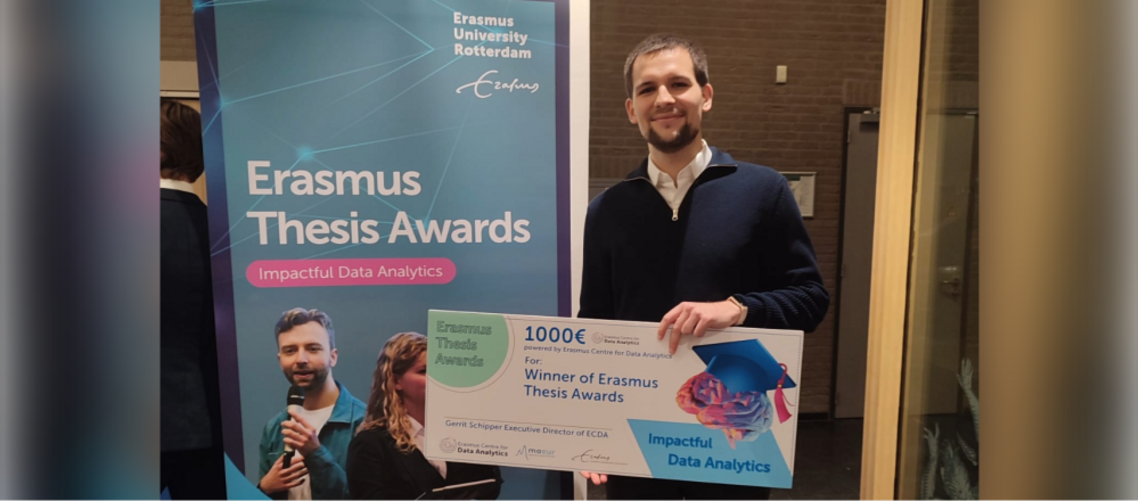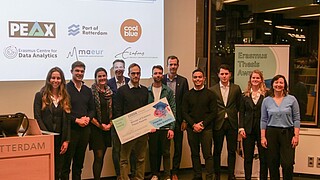When Aleksander started his RSM master, he already knew he wanted to conduct research about sustainability in financial markets, hoping to contribute to the ongoing transition towards more responsible investment practices. He managed to get an internship in the quantitative research department at Robeco, an asset management company that focuses on quantitative and sustainable investing. The company supervisors assigned Aleksander to green bonds, which as debt instruments used in financing the transition to a low-carbon, climate-resilient economy.
Measuring sustainability
For his thesis research, Aleksander used the Bidirectional Encoder Representations from Transformers (BERT) model. This natural language processing method for textual analysis helped him to create a measure of greenness of the bond based on semantics found in documentation published by the bond's issuer.
He explains: “This tool can help investors expand the universe of green bonds they consider in their portfolios by automating the analysis so that they can consciously choose to finance greener projects, and therefore advance the transition quicker.”
Aleksander also explored ‘greenium’ pricing – or green premium – which refers to pricing benefits based on the logic that investors are willing to pay extra for a bond with a sustainable impact. Based on the semantics score he constructed, Aleksander found that greener bonds are associated with a higher greenium. This means that investors are willing to give up part of their financial returns for the sake of the sustainability benefits that green bonds bring to the table.
Aleksander says the Erasmus Thesis Award helps show his research to a wider audience. He hopes he can inspire current students as they embark on their own demanding thesis trajectory.
Erasmus Thesis Awards
The Erasmus Thesis Awards: Impactful Data Analytics celebrates data and AI talent at Erasmus University Rotterdam (EUR), and brings together data and AI researchers and practitioners. It also helps prepare young talent for a career that will involve data and AI, to see how to apply these in a well thought out, effective and ethical way.
A number of talented data-minded recent graduates with exemplary results pitched their thesis in front of a jury and audience. The jury, consisting of academics and data professionals from companies, evaluated the pitches and chose Aleksander Odziemkowski as the winner. He will receive a cash prize of €1,000.
The jury looked at the data element, the depth of the analysis, the application of data science methods, the pitch, and the business potential and societal impact. Another key element of the competition was answering the audience questions from the diverse EUR data and AI related researchers and students. The Erasmus Thesis Awards are made possible by the Erasmus Centre for Data Analytics (ECDA), Maeur, FAECTOR and the academic and student community around data and AI at EUR.
Last year, the thesis award was also won by an RSM graduate. Sven Tellemanns from RSM’s MSc in Business Information Management was recognised for this master thesis on stock market prediction.


